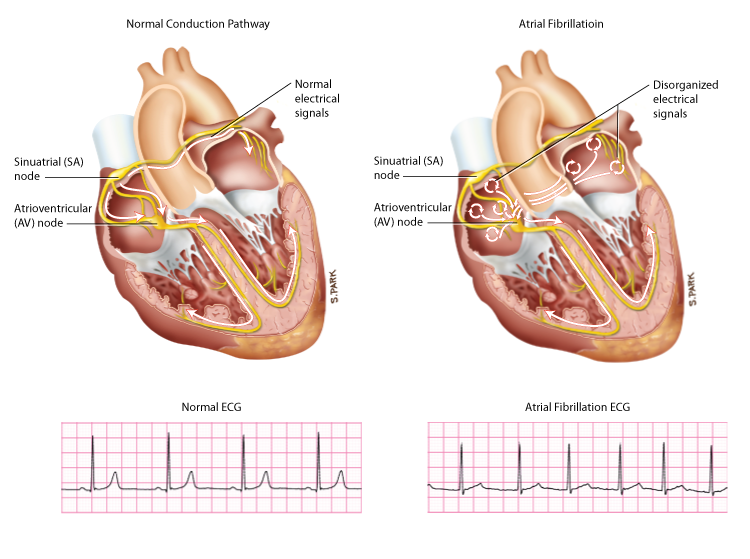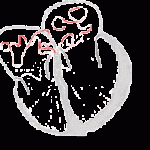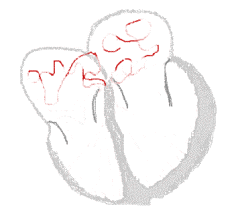Atrial fibrillation is the name of a common type of irregular heart beat condition. It is a very common condition, and is estimated to affect 5% of people at the age of 70. In atrial fibrillation the normal regular rhythmic activity of the heart becomes erratic and chaotic, and the heart cannot pump blood as effectively as it normally does. This leads to the symptoms of atrial fibrillation which often include palpitations, or a “flutter” in the heart, shortness of breath, dizziness, chest discomfort, tiredness and difficulty exercising.
Oftentimes people do not experience any symptoms at all, and are unaware of the condition. In addition to the aforementioned symptoms, this ineffective contraction of the heart means that blood can pool in the upper chambers of the heart, and stagnate, which leads to the formation of clots. The clots can then become dislodged and travel along the arteries to the brain, resulting in a stroke, which is one of the reasons early detection of atrial fibrillation is so important.

The diagnosis of atrial fibrillation is very simple. It may be detected by your doctor or nurse checking your pulse either by feeling the pulse at your wrist, or by listening to the heart with a stethoscope. If the pulse is thought to be irregular, an electrocardiogram (ECG), known as a “heart tracing”, can confirm the presence of atrial fibrillation. An ECG is a painless, quick test, which can be done at your GP’s surgery in a few minutes, by placing a number of pads on the legs, arms and chest.
If someone is diagnosed with atrial fibrillation, there are many medications which can be used to treat it. Usually people need two different types of medications. Firstly there are medications used to slow the heart rate and to help it beat more regularly, and secondly there are blood thinners which help to prevent clots forming and in doing so prevent strokes. The most common of these is warfarin, which requires regular blood test monitoring, but in recent years some alternative options have become available, which do not require regular blood test monitoring. Sometimes if atrial fibrillation is detected early, cardioversion can be used to “shock” the heart back to its normal rhythm, which is effective for some people.
If you are concerned about the possibility of atrial fibrillation, or experience any of the symptoms mentioned above, your doctor can easily assess you to check for it.
Dr Maire McGarry, GP Registrar
- Sinus rhythm
- Atrial fibrillation







